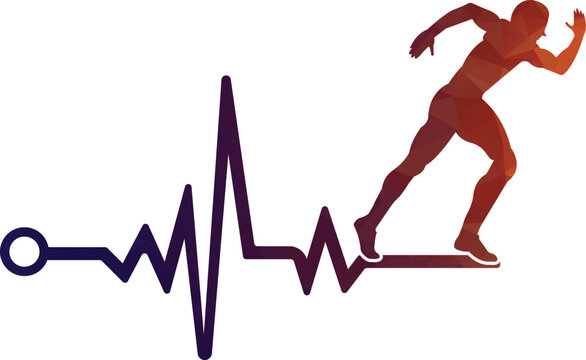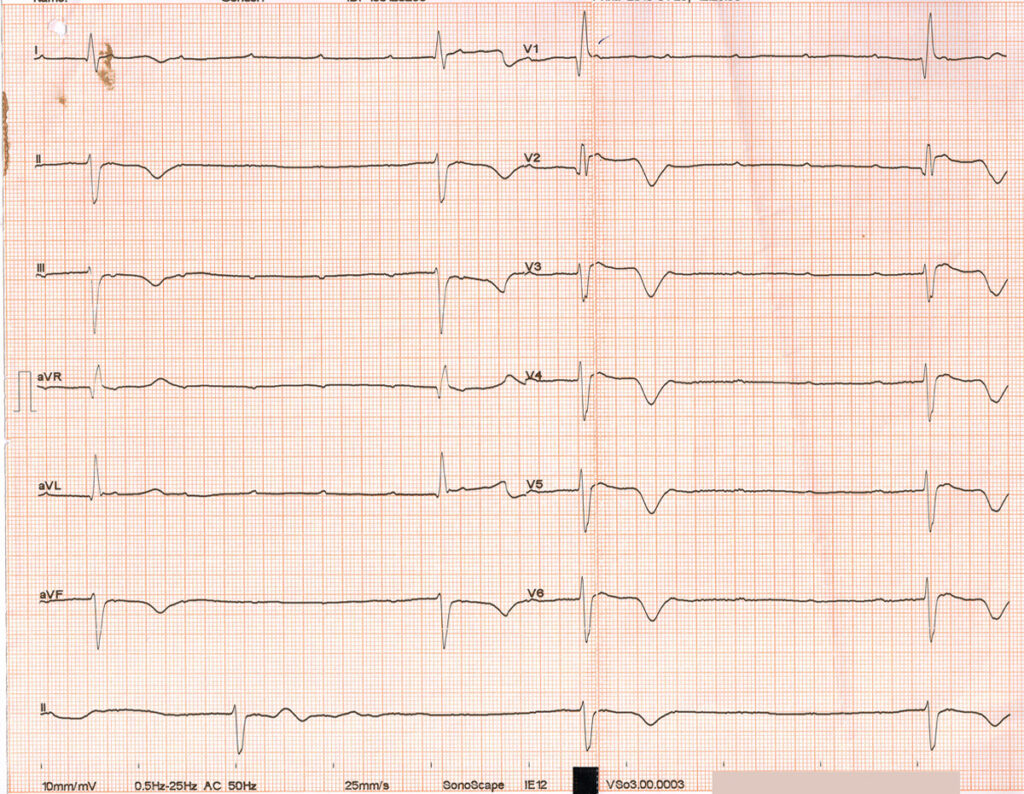ECG for Sports Persons, In the world of sports, an athlete’s physical health is paramount to achieving peak performance. While strength and stamina are often emphasized, the heart—a core organ in any physical activity—plays an essential role in sustaining athletic efforts. Monitoring heart health, specifically through an electrocardiogram (ECG), is becoming increasingly common among sportspeople. But what exactly is an ECG, and why is it particularly important for athletes? This article will dive into the relevance of ECGs for sports persons, exploring their benefits, types, practical steps, and common misconceptions to help athletes and enthusiasts better understand this vital health measure.
“An ECG can be a game-changer for sports persons, providing crucial insights for peak performance and heart health.”
Explanation and Overview of ECG for Sports Persons
What Is an ECG?
An Electrocardiogram (ECG or EKG) is a diagnostic test that records the electrical activity of the heart. During physical exertion, the heart must work harder, pumping oxygenated blood throughout the body to support increased muscle activity. An ECG helps to detect any irregularities in heart rhythm, the strength of electrical signals, and potential signs of heart conditions. For sports persons, an ECG provides a snapshot of their heart health, allowing trainers and medical professionals to assess cardiovascular fitness and identify any risks that could impact athletic performance or lead to severe health conditions.

Why Is ECG Essential for Athletes?
Regular physical exertion can place significant strain on the heart. For sportspeople, understanding heart function under stress is crucial to preventing sudden cardiac events or other cardiovascular issues. An ECG allows athletes to monitor the adaptability of their heart under stress, offering insight into aspects like resting heart rate, heart rhythm, and the heart’s overall capacity to handle exertion. In many cases, it serves as an early detection tool, catching potential heart problems that could otherwise go unnoticed.
Benefits of ECG for Sports Persons
- Early Detection of Cardiac Abnormalities:
ECGs can reveal signs of arrhythmias, hypertrophic cardiomyopathy, and other conditions that might pose risks during intense physical activities. Early detection of these issues is essential for sportspeople who engage in high-intensity workouts and competitions. - Performance Optimization:
By providing data on heart rate and rhythm, ECGs can help athletes fine-tune their training routines, ensuring that their cardiovascular system performs optimally without excessive strain. - Informed Medical Decisions:
With regular ECG monitoring, sports physicians can make informed decisions about an athlete’s fitness levels, readiness for competitions, and safe training intensity, helping to prevent overexertion. - Psychological Reassurance:
Knowing that their heart health is regularly monitored provides peace of mind for athletes, allowing them to focus on performance without the looming fear of undetected cardiac issues. - Long-Term Health Benefits:
Athletes who monitor their heart health consistently through ECGs can prevent long-term cardiovascular problems, maintaining healthier lifestyles well beyond their athletic careers.
Step-by-Step Guide to ECG Testing for Athletes
Understanding the process of getting an ECG can alleviate anxiety and ensure athletes are well-prepared for the test. Below is a step-by-step guide:
- Preparation:
Avoid caffeine and other stimulants before the test, as they can alter heart rate. Wear loose clothing to allow easy access for the placement of ECG electrodes. - Rest and Relax:
Resting for at least 5-10 minutes before the test helps stabilize the heart rate, providing a more accurate reading of resting heart conditions. - Placement of Electrodes:
The technician will place electrodes on the chest, arms, and legs. These electrodes detect electrical signals from the heart and record them onto the ECG machine. - Recording of Data:
The ECG machine records the heart’s electrical signals as series of waves on a graph. This recording, typically lasting a few seconds to a minute, shows different aspects of heart function. - Analysis by a Specialist:
Once the ECG is completed, a cardiologist or sports physician will review the results. They will look for irregularities in heart rate, rhythm, and electrical conduction. - Follow-Up Recommendations:
Based on the ECG results, further testing or lifestyle adjustments may be recommended. Regular follow-ups ensure that any changes in heart health are closely monitored.
Types of ECGs Relevant to Sports Persons
1. Resting ECG
A resting ECG is conducted while the athlete is at rest. This test establishes a baseline reading of heart rate and rhythm, helping to detect any abnormalities without the influence of physical activity.
2. Stress ECG (Exercise ECG)
Stress ECGs are often used to monitor the heart during physical exertion, typically on a treadmill or stationary bike. This test is particularly useful for sports persons as it assesses how the heart responds under stress, revealing potential issues that may not appear at rest.
3. Holter Monitor
A Holter monitor is a portable ECG device worn for 24-48 hours. This continuous monitoring is valuable for athletes with unexplained symptoms, as it can record heart activity during different stages of daily routines, including training sessions.
4. Event Monitor
An event monitor is similar to a Holter but is only activated when symptoms appear. For athletes experiencing intermittent symptoms like dizziness or palpitations, this device records data when activated, providing more targeted insights.
Common Mistakes and Myths About ECG for Athletes
- Myth: “Only older athletes need an ECG.”
While older athletes might be more prone to cardiovascular issues, young sportspeople can also be at risk. Sudden cardiac arrest can affect individuals of any age, making ECGs vital for athletes of all ages. - Myth: “If you’re fit, you don’t need an ECG.”
Fitness and heart health are not always directly correlated. A person can be physically fit and still have underlying heart conditions. ECGs ensure that heart health aligns with physical fitness. - Mistake: “Skipping ECGs due to cost or inconvenience.”
Although ECGs require time and a small financial investment, skipping them can lead to undetected issues that may result in severe health problems. Prioritizing ECGs can help prevent costly emergency medical situations. - Myth: “Once an ECG is clear, there’s no need for future tests.”
Heart health can change over time, especially with intense training and aging. Regular ECGs are recommended to monitor any changes that might occur due to lifestyle, training intensity, or natural health developments. - Mistake: “Misinterpreting ECG Results Without Expert Guidance.”
ECG readings require professional interpretation. Attempting to read an ECG without medical training can lead to incorrect assumptions and unnecessary anxiety.
Conclusion
For sportspeople, an ECG is a valuable tool that goes beyond basic health monitoring, offering detailed insights into cardiovascular health and helping to optimize performance. From early detection of potential heart issues to enabling targeted training and peace of mind, ECGs provide an array of benefits for athletes at all levels. Regular ECG monitoring, especially for those in high-intensity sports, can be a life-saving measure, ensuring that their physical health aligns with their athletic goals.
Incorporating ECG screenings into regular health check-ups can significantly improve long-term health and career longevity, allowing sportspeople to perform at their best while maintaining their heart health. Don’t overlook this essential aspect of athletic preparation—schedule an ECG and take control of your heart health today.
